Swiss Cheese & Canines: A Gouda Idea or Potential Problem? Can Dogs Eat Swiss Cheese?
- 29 Apr 2025 09:13
Swiss cheese, instantly recognizable by its characteristic holes (or "eyes") and distinct nutty, slightly sweet flavor, is a popular choice for sandwiches and cheese boards. As you enjoy a slice, your canine companion might gaze up hopefully, prompting the question from many devoted dog owners: can dogs eat Swiss cheese? Unlike some foods that are strictly off-limits, the answer for Swiss cheese is nuanced. While generally not considered toxic in small quantities, it's not an ideal treat due to its fat and sodium content. However, compared to many other cheeses, it does have one characteristic that makes it *relatively* safer in tiny amounts – lower lactose levels. This comprehensive guide, grounded in veterinary nutritional knowledge and adhering to EEAT standards, will explore the pros, cons, risks, and safe feeding guidelines for offering Swiss cheese to your dog.
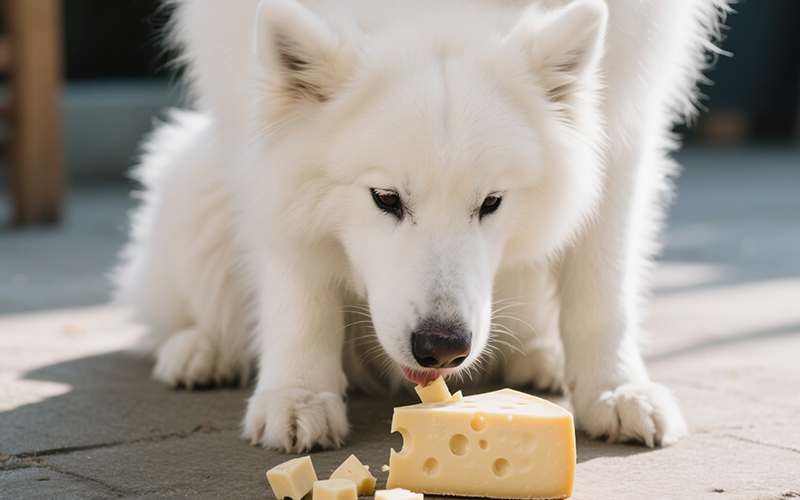
What Makes Swiss Cheese... Swiss?
Understanding Swiss cheese helps clarify its potential impact on dogs. True Swiss cheese (like Emmental) undergoes a specific aging process involving particular bacteria (notably *Propionibacterium shermanii*). These bacteria consume the lactic acid produced during fermentation and release carbon dioxide gas, forming the iconic holes. Importantly for our discussion, this process also contributes to:
Lower Lactose Content: The bacteria consume much of the lactose (milk sugar) present in the original milk during aging.
Distinct Flavor:** The process contributes to its nutty, mildly sweet taste.
Firm Texture:** It's a semi-hard cheese.
Nutrient Profile:** Like most cheeses, it's a source of protein, calcium, and phosphorus, but also contains significant amounts of fat and sodium.
The lower lactose content is the primary reason why Swiss cheese might be better tolerated by some dogs compared to softer, higher-lactose cheeses.
The Lactose Lowdown: Why Swiss Cheese Might Be Different
Lactose intolerance is extremely common in adult dogs. Here's why:
Lactase Enzyme:** Puppies produce ample amounts of lactase, the enzyme needed to break down lactose (the sugar in milk).
Post-Weaning Decline:** As dogs mature and are weaned off their mother's milk, their bodies naturally produce significantly less lactase.
Intolerance Symptoms:** Without sufficient lactase, undigested lactose travels to the large intestine, where bacteria ferment it, drawing water in and causing common signs of intolerance:
Diarrhea
Gas (flatulence)
Bloating
Vomiting
Abdominal discomfort
Swiss Cheese Advantage:** Because the aging process and bacterial action significantly reduce the lactose content in Swiss cheese compared to fresh milk or soft cheeses (like mozzarella or cottage cheese), many dogs can tolerate *very small amounts* without triggering digestive upset related to lactose.
However, **lower lactose does not mean lactose-free**, and individual dogs vary greatly in their tolerance levels. Furthermore, lactose is only one part of the safety equation.
Potential Benefits (Viewed with Caution)
While not a necessary part of a dog's diet, tiny amounts of plain Swiss cheese *might* offer minuscule benefits, though these are easily obtained from their regular food:
Protein:** Cheese is a source of protein, but dogs should get high-quality animal protein from their main diet.
Calcium and Phosphorus:** Important minerals for bone health, but again, should be adequately supplied by balanced dog food. Excess phosphorus can be harmful to dogs with kidney disease.
Palatability:** Many dogs love the taste, making a tiny piece potentially useful for administering medication (pilling) – *if* your vet approves and your dog tolerates it well without adverse effects from fat/sodium.
These minor potential benefits are generally outweighed by the risks associated with fat and sodium content when considering cheese as a regular treat.
Major Risks and Concerns: Why Caution is Crucial
Despite the lower lactose level, feeding Swiss cheese carries significant risks, especially if given frequently or in large amounts:
1. High Fat Content
Swiss cheese, like most cheeses, is high in fat.
Pancreatitis Risk:** This is a major concern. A sudden intake of high-fat food is a known trigger for **pancreatitis** in dogs – a painful, potentially severe inflammation of the pancreas that often requires emergency veterinary care. Symptoms include severe vomiting, diarrhea, abdominal pain, lethargy, and loss of appetite. Some dogs are more susceptible than others.
Obesity:** Fat is calorie-dense. Regularly feeding cheese contributes excess calories, leading to weight gain and obesity. Obesity significantly increases the risk of arthritis, diabetes, heart disease, respiratory issues, and shortens lifespan.
Gastrointestinal Upset:** Even if pancreatitis doesn't occur, the high fat can cause general digestive upset like diarrhea or vomiting in some dogs.
2. High Sodium (Salt) Content
Cheese is naturally quite high in sodium, and Swiss is no exception.
Health Implications:** While dogs need some sodium, excessive intake is harmful. It can cause increased thirst/urination, dehydration, vomiting, diarrhea, and potentially lead to **sodium ion poisoning** (hypernatremia) with neurological signs (tremors, seizures, disorientation) in severe cases.
Underlying Conditions:** High sodium is especially dangerous for dogs with pre-existing heart disease, kidney problems, or hypertension.
3. Caloric Density
Even small cubes of cheese pack a caloric punch. It's easy to overfeed calories with cheese treats, contributing to weight problems.
4. Dairy Allergy/Sensitivity (Beyond Lactose)
Some dogs may be allergic or sensitive to milk proteins (like casein) themselves, not just the lactose. In these dogs, even low-lactose Swiss cheese can trigger allergic reactions (itching, skin issues, ear infections, digestive upset).
5. Potential for Additives (Processed Swiss)
While traditional Swiss cheese has simple ingredients, be cautious of processed "Swiss-style" cheese slices or products. These may contain added emulsifiers, preservatives, higher sodium levels, or even potentially harmful flavorings (though less common with Swiss flavor). Always opt for plain, real Swiss cheese if offering any.
Moderation is Everything: Serving Guidelines
If, after considering the risks and consulting your vet, you decide to offer a tiny taste of Swiss cheese, **strict moderation** is non-negotiable.
Tiny Portions Only:** Think very small – a cube the size of your pinky fingernail or a pea for a small dog, maybe slightly larger for a giant breed, but still minimal.
Occasional Treat Only:** This should not be a daily or even frequent treat. Reserve it for very special occasions or potentially for administering medication (with vet approval).
Part of the 10% Rule:** All treats combined (including cheese) should make up no more than 10% of your dog's total daily caloric intake. Cheese is calorie-dense, so that 10% limit is reached very quickly.
Plain Only:** Absolutely no flavored Swiss cheese, processed cheese slices with added ingredients, or cheese served with crackers, bread, or other human foods.
Given the risks, many owners reasonably conclude that the answer to "can dogs eat Swiss cheese?" should lean towards avoiding it, even if small amounts *might* be tolerated.
How to Offer Swiss Cheese Safely (If You Choose To)
1. **Consult Your Vet:** Discuss it with your veterinarian first, especially if your dog has any history of pancreatitis, sensitive stomach, allergies, obesity, kidney, or heart issues. 2. **Choose Plain, Real Swiss Cheese:** Avoid processed slices or flavored varieties. Low-fat versions might slightly reduce pancreatitis risk but are often higher in sodium or additives – plain, regular Swiss in tiny amounts is usually preferred over altered versions if giving any at all. Some sources suggest avoiding the rind, although it's generally edible. 3. **Cut into Tiny Pieces:** Ensure the pieces are very small to control the portion size accurately and prevent choking. 4. **Start with One Tiny Piece:** Offer just one minuscule piece the first time. 5. **Monitor Closely:** Watch your dog for the next 24-48 hours for any signs of digestive upset (vomiting, diarrhea, gas, discomfort) or allergic reaction. 6. **Discontinue if Issues Arise:** If any negative signs appear, do not offer Swiss cheese again.
Swiss Cheese vs. Other Cheeses for Dogs
Compared to other cheeses, Swiss has the **advantage of lower lactose**. This makes it *less likely* to cause lactose-intolerance symptoms than:
Soft cheeses (Mozzarella, Cream Cheese, Cottage Cheese - unless specifically low-lactose)
Fresh Milk
However, it shares the **disadvantages of high fat and high sodium** common to most cheeses. Some cheeses pose additional risks:
**Blue Cheese (e.g., Roquefort, Stilton):** Can contain Roquefortine C, a fungal metabolite that can cause vomiting, diarrhea, tremors, and seizures in dogs, especially if consumed in large amounts. Best avoided.
**Cheeses with Added Flavors:** Any cheese containing garlic, onion, chives, or other toxic ingredients is strictly off-limits.
While Swiss might be *relatively* better tolerated due to low lactose, it's still not an ideal treat due to fat/sodium. Hard, aged cheeses like cheddar or parmesan also tend to be lower in lactose but share the fat/sodium concerns.
What If My Dog Eats Too Much Swiss Cheese?
If your dog overindulges: 1. **Assess Quantity:** Estimate how much was eaten. 2. **Prevent Further Access:** Secure any remaining cheese. 3. **Monitor Closely:** Watch for symptoms of: * **Gastrointestinal Upset:** Vomiting, diarrhea, gas, abdominal pain. * **Pancreatitis:** Persistent or severe vomiting, severe lethargy, loss of appetite, extreme abdominal pain (hunched posture). **This requires immediate veterinary attention.** * **Sodium Issues (Less common unless huge amount eaten):** Excessive thirst, tremors, disorientation, seizures. **Also an emergency.** 4. **Contact Your Veterinarian:** Call your vet, especially if a large amount was consumed or if your dog has a history of pancreatitis or other relevant health issues. Report any symptoms immediately. They may advise monitoring, inducing vomiting (only if safe/recent), or bringing the dog in for examination and potential supportive care (fluids, anti-nausea meds).
Swiss Cheese Safety for Dogs: Summary Table
This table highlights the key points regarding Swiss cheese for dogs:
| Aspect / Concern | Safety Level / Consideration | Details & Recommendation |
| Overall Toxicity | Non-Toxic (Plain cheese) | Plain Swiss cheese itself isn't poisonous. |
| Lactose Content | Lower Risk (Compared to other dairy) | Low lactose cheese dogs may tolerate tiny amounts better. Still not lactose-free; individual tolerance varies. |
| High Fat Content | High Risk / Unhealthy | Risk of **pancreatitis**, contributes to obesity, potential G.I. upset. Major reason for caution. |
| High Sodium Content | High Risk / Unhealthy | Risk of dehydration, sodium poisoning, bad for heart/kidney conditions. Concerns about sodium dogs cheese intake. |
| Caloric Density | High Risk / Unhealthy | Contributes significantly to daily calorie intake even in small amounts; obesity risk. |
| Dairy Protein Allergy | Moderate Risk (for sensitive dogs) | Some dogs are allergic/sensitive to milk proteins. |
| Overall Answer to: Can dogs eat swiss cheese? | Yes, in *tiny*, infrequent amounts *if* plain, due to lower lactose. However, high fat and sodium make it generally not recommended. Risks often outweigh benefits. Strict moderation and veterinary consultation advised. Many safer treats exist. | |
Navigating Pet Nutrition Questions with PettureX
Understanding the nuances of which human foods are safe for pets can be complex. Having quick access to reliable general information is helpful. The **PettureX** app is designed as a smart assistant for pet owners navigating these questions. PettureX features include:
24/7 AI Veterinary Consultation: Use the AI chat to ask general questions about food safety or symptoms, like "Why is high fat bad for dogs?" or "What are signs of pancreatitis?". Get instant information to help understand potential risks. *Remember, AI provides general knowledge and cannot replace personalized veterinary diagnosis or advice.*
Image Recognition for Pet Health:** Can assist in identifying visual symptoms or concerns.
Animal Species Identification:** Useful for identifying plants or items your pet might interact with.
PettureX can be a valuable tool for quick information gathering, supporting your commitment to responsible pet ownership alongside your veterinarian.
Safer, Healthier Treat Alternatives for Your Dog
Instead of relying on potentially risky cheese, opt for treats that are unequivocally safe and healthy: * **Dog-Safe Vegetables:** Carrots, green beans, cucumber slices, celery, plain cooked sweet potato or pumpkin. * **Dog-Safe Fruits (in moderation):** Blueberries, apple slices (no core/seeds), banana, watermelon (no seeds/rind). * **Plain Cooked Lean Meat:** Small pieces of unseasoned chicken, turkey, lean beef, or fish. * **Commercial Dog Treats:** Choose high-quality, low-calorie treats formulated for dogs. Read ingredient labels carefully. Dental chews can also be beneficial. * **Their Own Kibble:** Use pieces of their regular food as training rewards.
Conclusion: Swiss Cheese - Use Extreme Caution or Choose Safer Options
So, returning to our core question, "can dogs eat Swiss cheese?", the technical answer is yes, tiny amounts of plain Swiss cheese are less likely to cause lactose-related issues compared to other cheeses and are not directly toxic. However, this doesn't make it a good or recommended treat. The high fat content poses a significant risk for pancreatitis and obesity, while the high sodium content is detrimental, especially for dogs with certain health conditions. If you choose to offer it, do so only after consulting your vet, ensure it's plain, use incredibly small portions (pea-sized), offer it very infrequently, and monitor closely for any adverse reactions. Given the risks and the abundance of genuinely safe and healthy alternatives, most veterinarians and informed owners would agree that it's generally wiser and safer to skip the Swiss cheese and opt for a treat that truly benefits your dog's health without carrying potential dangers.
Related
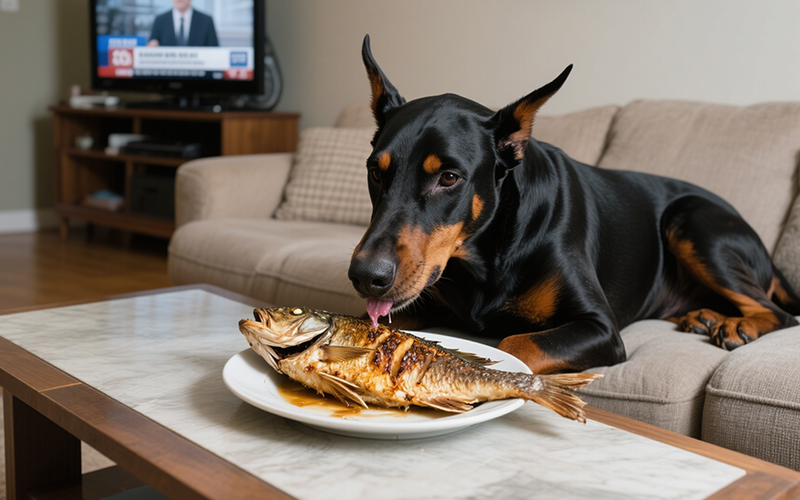
Can Dogs Eat Tilapia? A Deep Dive into Safety, Benefits, and Risks for Your Furry Friend
- 30 Apr 2025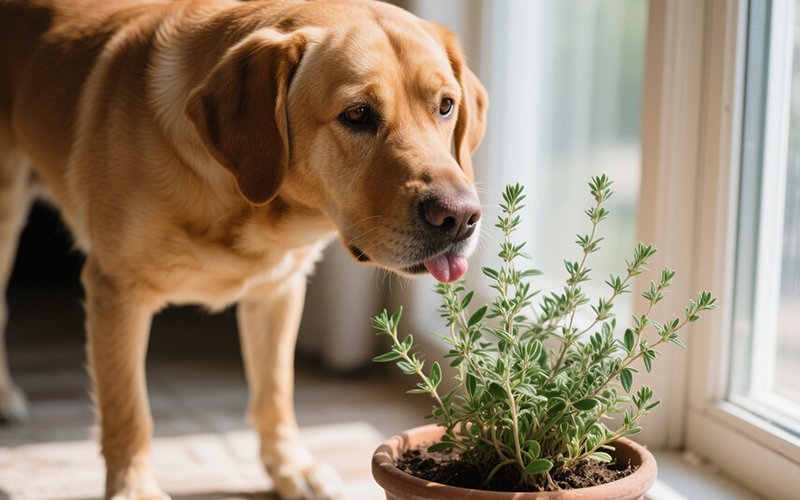
Can Dogs Eat Thyme? The Ultimate Vet-Approved Guide to This Aromatic Herb for Your Canine Companion
- 30 Apr 2025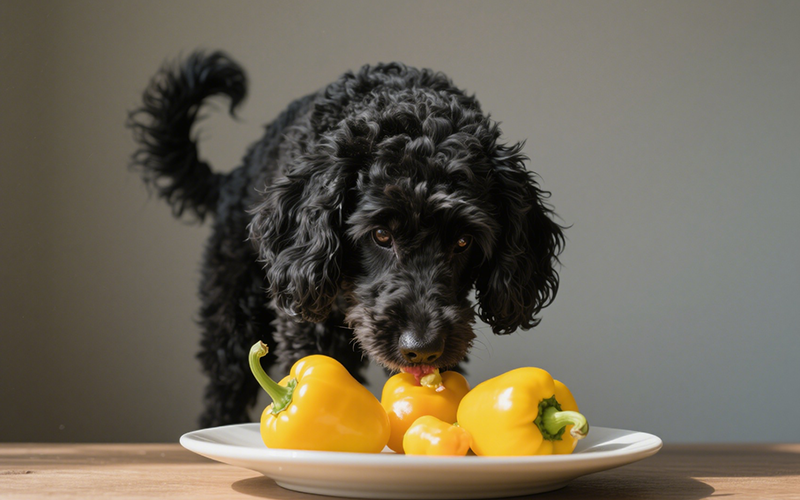
Crunch Time: Can Dogs Eat Sweet Peppers? A Colorful Guide to Safety & Benefits
- 29 Apr 2025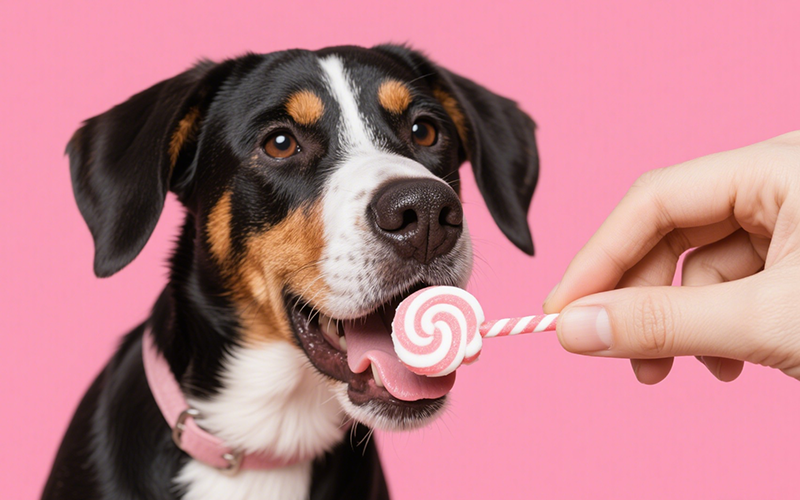
Sweet Deception: Can Dogs Eat Sugar? Unpacking the Risks for Your Canine Companion
- 28 Apr 2025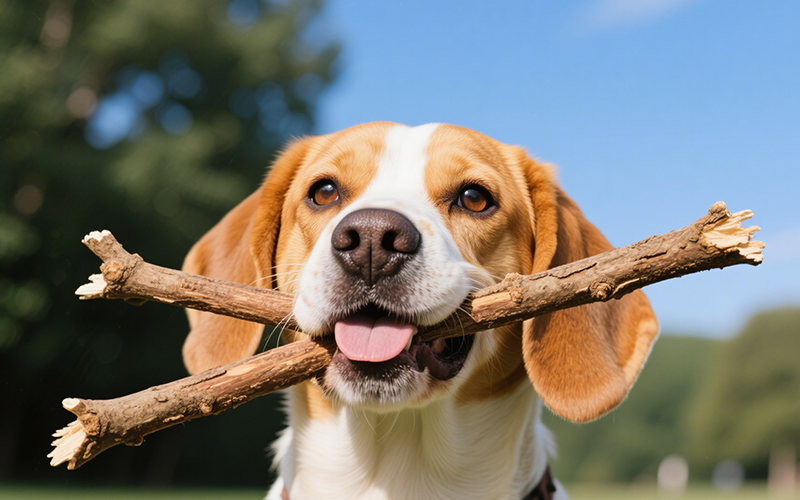
The Stick Situation: Why Chewing Sticks is a Risky Game for Dogs
- 28 Apr 2025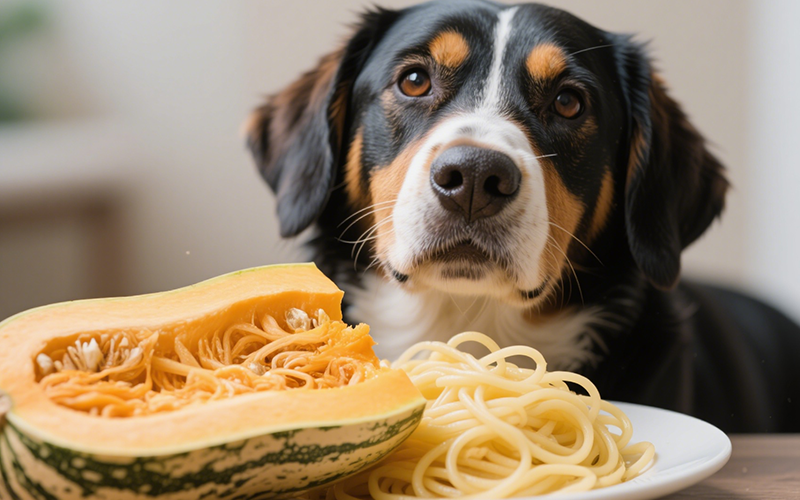
Squash Smarts: Can Dogs Eat Spaghetti Squash? A Vet-Approved Guide
- 26 Apr 2025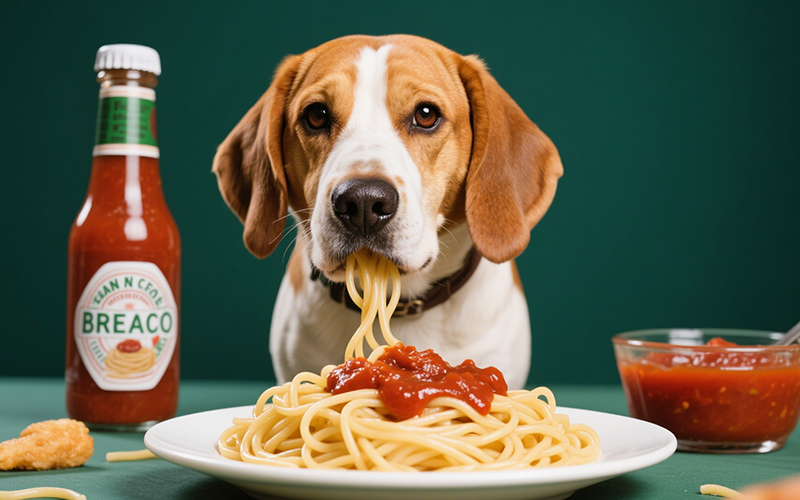
Sauce Inquiry: Can Dogs Eat Spaghetti Sauce Safely? Why Vets Advise Against It
- 26 Apr 2025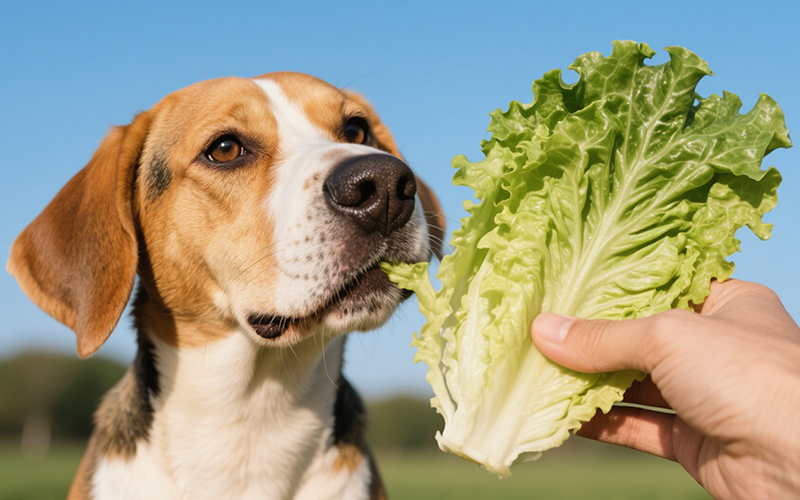
Crunchy Greens for Canines: Can Dogs Eat Romaine Lettuce Safely?
- 25 Apr 2025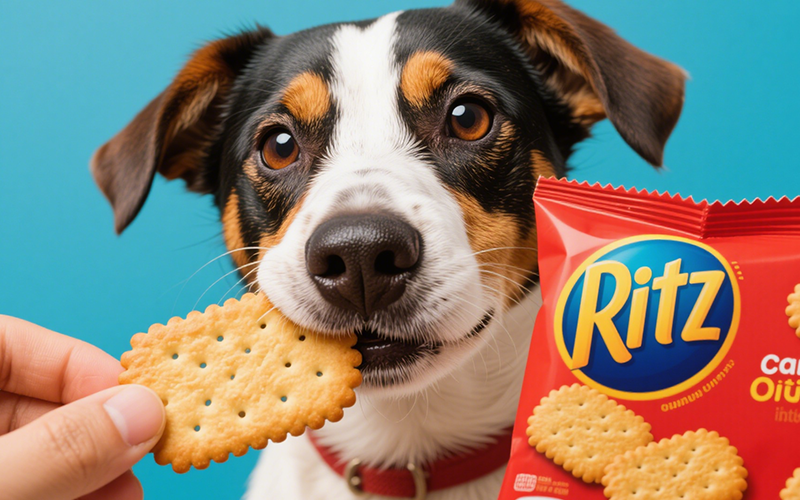
Ritz Crackers for Dogs? Why Vets Say No to This Common Snack
- 25 Apr 2025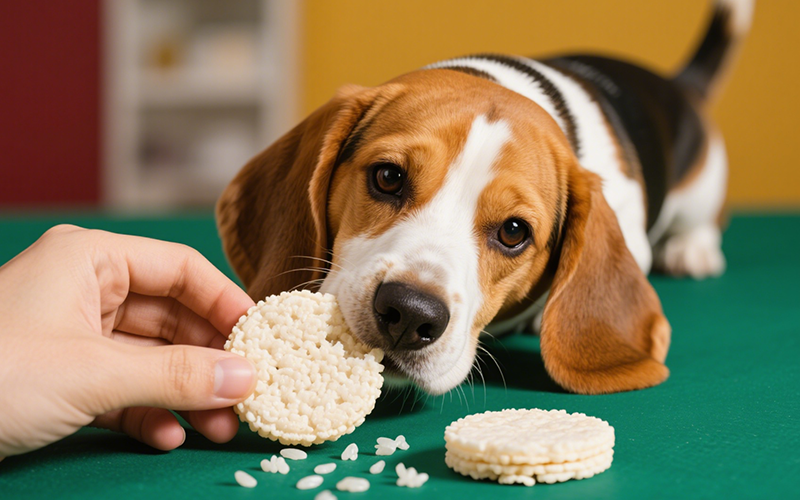
Rice Cakes for Rover? A Crunchy Question: Can Dogs Eat Rice Cakes Safely?
- 24 Apr 2025
